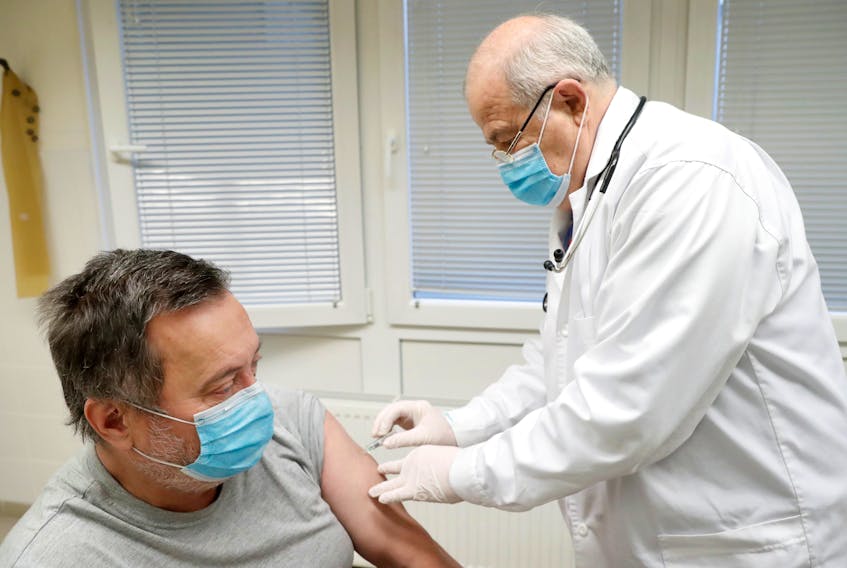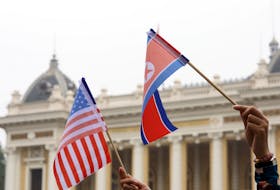By Francesco Guarascio and Ludwig Burger
BRUSSELS (Reuters) - The European Union drug regulator does not see enough evidence yet to recommend changes to the dosage regime for COVID-19 vaccines, despite pressure from EU states after positive data on the level of protection of a single shot.
EU nations' vaccination plans are lagging behind the United States and former EU member Britain, a delay that has prompted some countries to push for new approaches, including on the administration of vaccines.
Britain has been faster partly because it has extended the interval between vaccine doses. For the Pfizer-BioNTech vaccine, London recommends the booster should be given after 12 weeks, whereas the guidance from the European Medicines Agency (EMA) follows the companies' recommendations of a second dose after three weeks.
The EU regulator recommends the second shot of AstraZeneca's vaccine is administered between four and 12 weeks after the first, the same as the UK watchdog.
Asked whether tweaks were being considered, the EU regulator said late on Tuesday: "If and when new evidence for changes to dosing schedules becomes available, this will be assessed by EMA's scientific committees."
An EU official told Reuters that dosing changes were not expected at the moment as more evidence was needed.
Deviating from approved dosing schedules before getting sufficient evidence "might result in a risk of loss of effectiveness" of the vaccines, EMA said in its emailed statement on Tuesday.
EMA's comments came after a meeting of EU health ministers on Monday in which government representatives discussed the feasibility of more flexible dosages, based on emerging data, according to an EU official who attended the meeting.
Hungary said on Monday it would try to stretch vaccine supplies by extending the period between the two shots to rein in fast-spreading infections.
Italy's new Prime Minister Mario Draghi also suggested at a meeting of EU leaders last week that the first jab should be given priority.
Despite the pressure, EMA on Tuesday also said that vaccine makers had provided no evidence that would support the use of one single shot.
At present the EU has authorised the use of COVID-19 vaccines from Pfizer-BioNTech, Moderna and AstraZeneca, based on strong data when administered in two doses.
The pivotal trials were not designed to provide insight into the merits of just one shot but researchers have analysed real-world data after launch.
Initial results of a UK study among healthcare staff found in February that a single dose of the Pfizer-BioNtech vaccine cuts the number of asymptomatic infections by about 75%, which would significantly reduce the risk of transmission of the virus.
A separate study in Israel last week showed a single shot of the Pfizer vaccine was 57% effective in protecting against symptomatic infections after two weeks.
(Reporting by Francesco Guarascio in Brussels @fraguarascio and Ludwig Burger in Frankfurt;Editing by Elaine Hardcastle)









